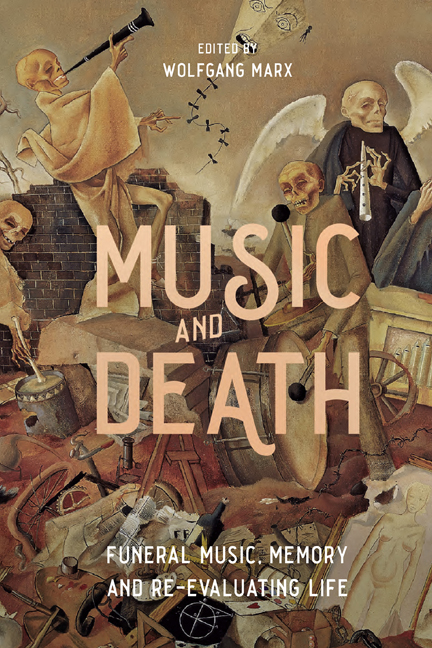6 - Through the Tears of Others: Staging Grief and French Identity in Interwar Musical Theatre
Published online by Cambridge University Press: 12 January 2024
Summary
During World War I, French composer Albert Roussel wrote from the trenches that, after the war, ‘it will be necessary to begin living all over again, with a new conception of life; this is not to say that all that was done before the war will be forgotten, but rather that everything done subsequently will be done in a different way’. In wondering whether his opera-ballet Padmâvatî would align with postwar aesthetics, he concluded that the drama – which ends with the murder of Padmavati's husband, her suicide, and a chorus of mourners – was ‘virile and strong’ rather than ‘morbid or deliquescent’. Thus, he surmised that it would fare well with postwar audiences. Roussel was correct: Padmâvatî was amongst the most successful Paris Opera productions in the 1920s. Roussel's assertion that postwar music would depart from prewar music was also accurate: neoclassicism, and in particular a repetitive musical style known as the style dépouillé, dominated much of France's postwar musical landscape. However, Roussel's assertion of a postwar ‘virile’ music prompts us to ask how interwar French musical production intertwined with considerations of masculinity. Roussel's concerns with avoiding ‘morbid’ music in a musical-theatrical work that placed death and grief centre stage suggest that musical mourning scenes offered particularly significant, albeit fraught, spaces for negotiating interwar French masculine identities.
Scholars of wartime and interwar French musical cultures have written about the war's effects on musical theatre, focusing on how theatrical institutions and productions intertwined with composers’ politics. Numerous musicologists have examined French musical modernists’ engagement with cultural ideas about gender, sexuality, and race. Although some scholars address grief, few have focused on how the war's losses appear in interwar musical theatre. One exception is Tamara Levitz's analysis of Andre Gide’s, Ida Rubinstein’s, and Igor Stravinsky's Perséphone; here, she underlines loss as a central feature of interwar musical-theatrical creation
- Type
- Chapter
- Information
- Music and DeathFuneral Music, Memory and Re-Evaluating Life, pp. 110 - 133Publisher: Boydell & BrewerPrint publication year: 2023



